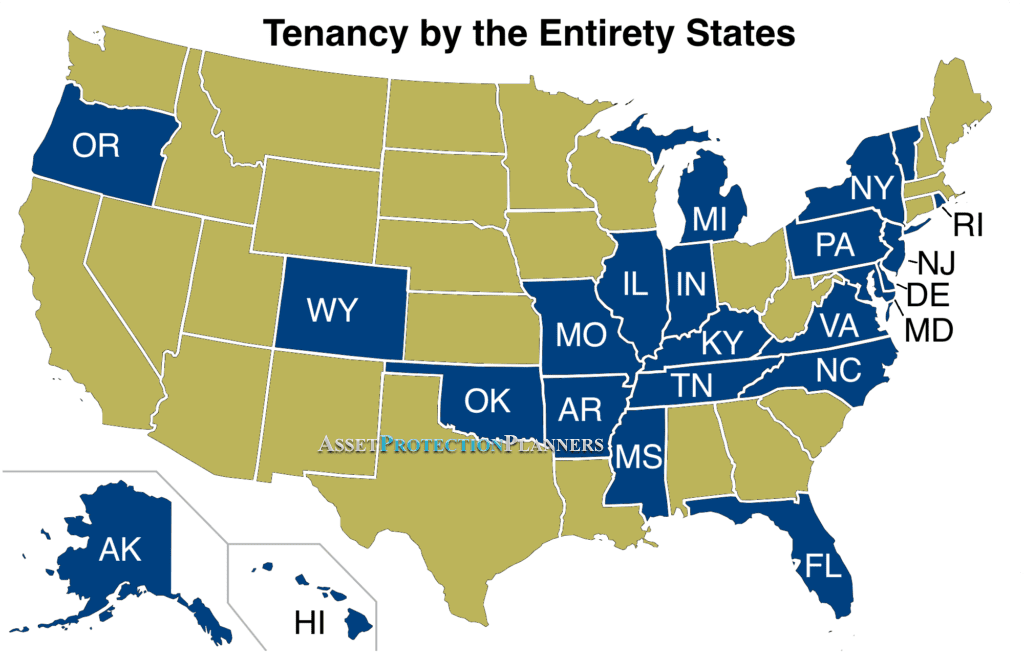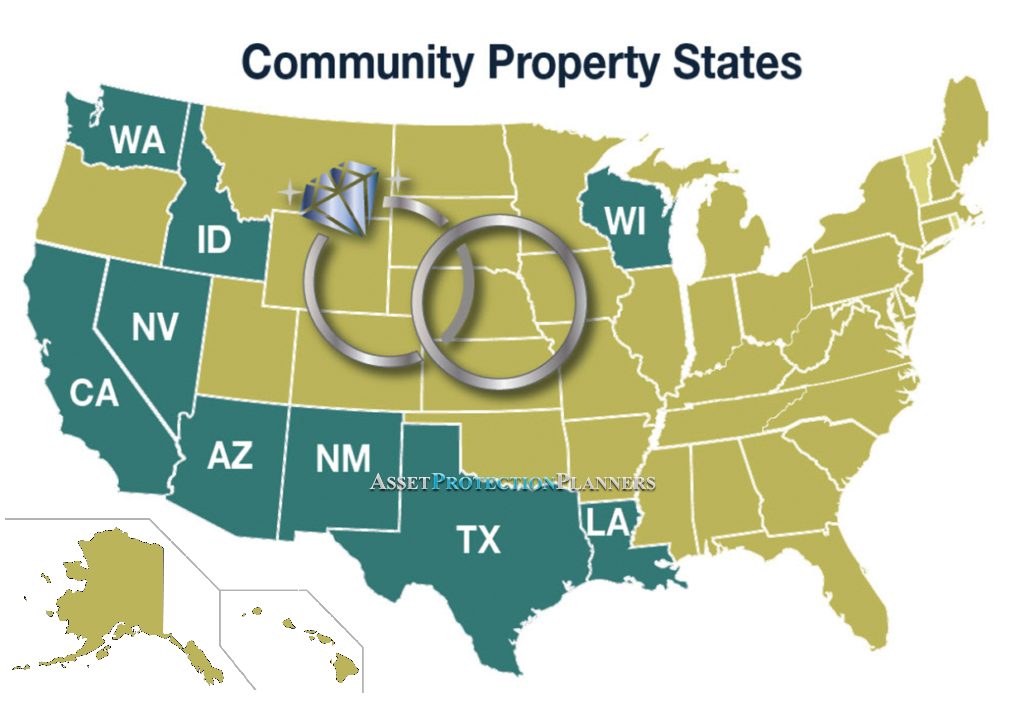Community Property State Definition
The definition of a Community Property State is a state in which the law considers that property acquired by a married couple during their marriage is joint property. This is the case even if only one spouse acquired solely it his or her name. Creditors with a civil judgment against one spouse can enforce it by seizing the assets of the debtor. What is more, they can also seize the assets of the debtor’s spouse. Plus, they can take those held jointly by both spouses.
The concept is that the husband and wife each obtain a one-half interest in what the law calls community property. When the asset was obtained is one determining factor. Community property is typically considered to be the assets that couple owns and that were obtained while married. An exception might be separate property either spouse owns individually. For example, separate property includes the assets that each individual brings into the marriage. It can also include property that either spouse inherits during the marriage.
States that have adopted such statutes that utilize a community property method of dividing resources patterned their statutes after Spain and France. Napoleonic Code influenced each of these standards. After viewing this, you may want to know about some other statutory protections. You can view the homestead exemptions and IRA creditor exemptions by state.

Tenancy by the Entirety & Community Property Table
The following is a table of the Community Property States as well as the Tenancy by the Entirety States. It also reveals how each state relates TBE to real and personal property.
| States | Tenancy by the Entirety |
Real Property |
Personal Property |
Community Property State |
| Alabama | No | |||
| Alaska | Yes | Yes | Yes | |
| Arizona | No | Yes | ||
| Arkansas | Yes | Yes | Yes | |
| California | No | Yes | ||
| Colorado | No | |||
| Connecticut | No | |||
| Delaware | Yes | Yes | Yes | |
| District of Columbia |
Yes | Yes | Yes | |
| Florida | Yes | Yes | Yes | |
| Georgia | No | |||
| Hawaii | Yes | Yes | Yes | |
| Idaho | No | Yes | ||
| Illinois | Yes | Yes | No | |
| Indiana | Yes | Yes | No | |
| Iowa | No | |||
| Kansas | No | |||
| Kentucky | Yes | Yes | No | |
| Louisiana | No | Yes | ||
| Maine | No | |||
| Maryland | Yes | Yes | Yes | |
| Massachusetts | Yes | Yes | Yes | |
| Michigan | Yes | Yes | No | |
| Minnesota | No | |||
| Mississippi | Yes | Yes | Yes | |
| Missouri | Yes | Yes | Yes | |
| Montana | No | |||
| Nebraska | No | |||
| Nevada | No | Yes | ||
| New Hampshire | No | |||
| New Jersey | Yes | Yes | Yes | |
| New Mexico | No | Yes | ||
| New York | Yes | Yes | No | |
| North Carolina | Yes | Yes | No | |
| North Dakota | No | |||
| Ohio | No | |||
| Oklahoma | Yes | Yes | Yes | |
| Oregon | Yes | Yes | No | |
| Pennsylvania | Yes | Yes | Yes | |
| Rhode Island | Yes | Yes | Yes | |
| South Carolina | No | |||
| South Dakota | No | |||
| Tennessee | Yes | Yes | Yes | |
| Texas | No | Yes | ||
| Utah | No | |||
| Vermont | Yes | Yes | Yes | |
| Virginia | Yes | Yes | Yes | |
| Washington | No | Yes | ||
| West Virginia | No | |||
| Wisconsin | No | Yes | ||
| Wyoming | Yes | Yes | Yes |
The information about planning your asset protection strategy, tenancy by the entirety states and community property states was believed to be accurate at the time it was published. But no warranties or guarantees are given about the accuracy or completeness of the information.




